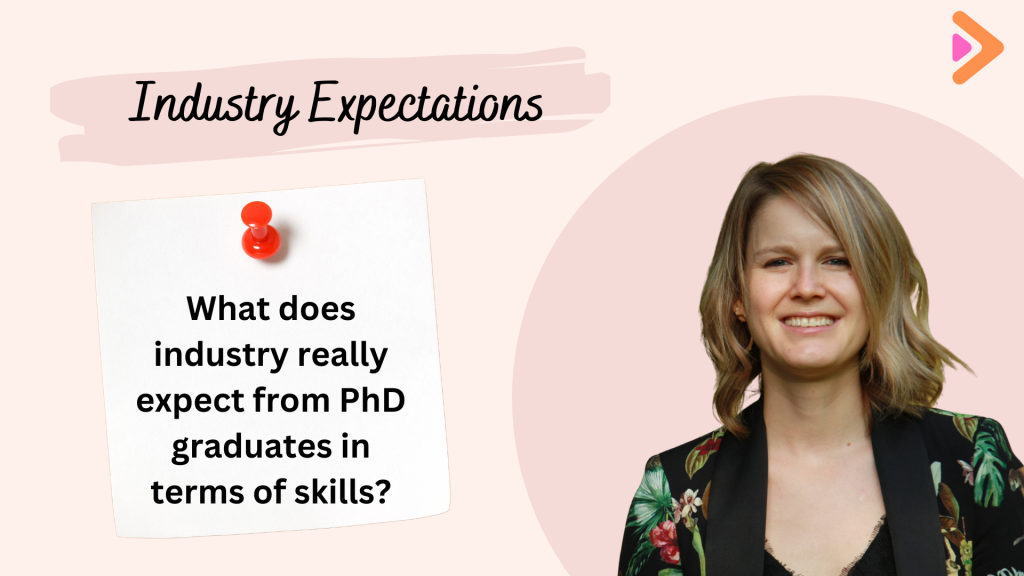
Understanding the real expectations beyond academia
Over the past few months, I’ve spoken with several PhD-trained scientists now working in industry – pharma, biotech, or applied research settings.
I asked them the same question:
What does industry actually expect from PhD graduates?
Last week, I had the chance to attend a conference with many (pharma) industry representatives -perfect timing to ask this question directly.
Even better, I joined a session focused on preparing the next generation of scientists. It was titled “Education with Impact”, so of course, I had to be there.
One speaker, from a major pharmaceutical company, really caught my attention. They presented a slide outlining the most valued skills in new hires.
The message was clear:
Technical knowledge matters – but soft skills matter more.
In this newsletter, I want to help you bridge the gap between what you think you’ve learned and what industry is actually looking for. I’ll share the most important soft skills mentioned during the session and show you how you’ve already developed many of them.
What does industry actually expect?
The speaker listed a few technical skills that are currently in high demand, such as AI and machine learning, advanced data analysis and big data management, as well as sustainability.
But that was only part of the picture.
Much more emphasis was placed on soft skills.
In industry, soft skills aren’t “nice to have” – they’re essential.
We should probably stop calling them “soft skills” and start calling them core skills.
The core skills mentioned?
💡 Fast-paced learning
💡 Adaptability
💡 Problem-solving
💡 Collaborative mindset
💡 Communication
💡 Being comfortable with constant changes
Now, reading this list, you might think: “I don’t have these skills. My PhD didn’t train me for that.”
But that’s not true. You’ve likely developed most of these skills.
You just haven’t been trained to recognize them.
Let’s break them down with concrete examples from your academic experience.
Soft skills
✅ Collaborative mindset
You’re part of a Horizon Europe project or a national grant consortium? You’ve learned to work across teams and cultures.
✅ Adaptability
Your project changed direction when your method failed or the instrument broke? You shifted course and kept going.
✅ Problem-solving
You got a harsh review, and the reviewer asked for new experiments? You figured out how to redesign your study.
✅ Communication
You’ve presented your research to people who don’t know your field – at conferences, to students, or to your family.
✅ Fast-paced learning
You had to quickly learn R or a new omics tool just to analyze your dataset on time.
✅ Comfort with change
Your supervisor needed a new figure, abstract, or pitch… yesterday? And yes, you made it happen.
📢 The Take-Home
💡 Industry doesn’t only want your technical expertise – they want professionals who adapt, learn fast, and collaborate well.
💡 You’ve likely built these skills already during your PhD. You just haven’t been trained to recognize or articulate them.
💡 Once you learn to name and frame them, you’ll be better equipped to position yourself for roles beyond academia.
Interested in receiving insights, tips and tools directly in your inbox? Sign up for the NextMinds Newsletter!
